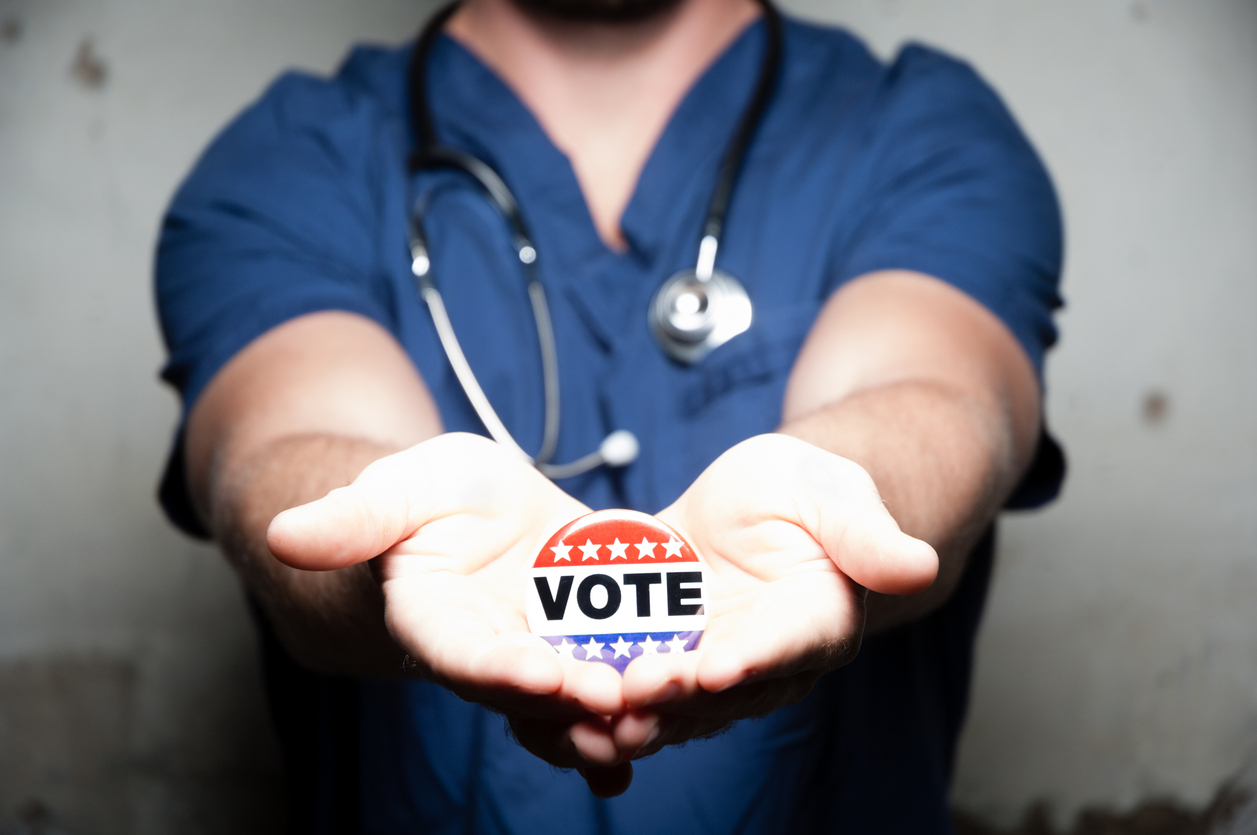Time Period: Present
Location: United States
Main Actors: The American Medical Association (AMA)
Tactics
– Declarations by Organizations and Institutions
In its June 2022 annual meeting, the American Medical Association (AMA) identified voting as a social determinant of health. As a result, doctors are making voter engagement a part of whole-person health care. Over 700 clinics, hospitals, and medical offices are helping their patients register to vote. The AMA is encouraging medical professionals to add a nonpartisan civic health screening, with the hope that helping people vote can address long-standing health disparities. According to the AMA, making ballots more available can help people better advocate for health-related issues such as clean air, better access to health care, and women’s or children’s health. The AMA is also helping patients to understand that social determinants of health—like affordable housing, food security, environmental rights, and disability accommodation—are equally important issues on many ballots. Per the AMA: “More voting is associated with better health outcomes. And as a rigorously nonpartisan organization, we work with our advisers across the political spectrum to ensure that resources are not partisan and that they speak to the daily experiences of Americans in their health.”
The broad reach of healthcare systems, combined with the trust that doctors, nurses, and social workers often have in their communities, offers an innovative avenue to engage voters, and the National Voter Registration Act of 1993 allows many hospitals and clinics to provide voter registration as a patient service. The AMA is encouraging individual doctors and healthcare providers to bring nonpartisan conversations into the clinical practice, connecting health professionals with nonprofits like AltaMed and Vot-ER to integrate civic engagement into health care. Organizations like these help people to register, without endorsing a political party, policy, or candidate. Vot-ER develops tools, training, resources, and programs for doctors, medical schools, clinics, and hospitals “build healthy communities powered by inclusive democracy.” Vot-ER reported that the healthcare industry helped nearly 50,000 Americans initiate their voter registration or request a ballot in 2020. The majority of those patients registered successfully and approximately 85% cast a ballot in the general election.
In August 2020, the American medical profession launched a civic health initiative and has celebrated Civic Health Month each subsequent year. This coalition now includes over 300 partners and over 80 medical schools participate in the Health Democracy Campaign. For the AMA, the goal of these kinds of initiatives is to empower each voter to choose who best represents them and use their own voice to advocate for their health.
However, the AMA is facing some skepticism from the congressional Doctors Caucus. Some members are concerned that the AMA is overstepping its professional expertise, and its position on voting exacerbates friction with those congressional conservatives around social advocacy. Even with this resistance, the AMA is continuing to build partnerships with civic engagement groups and other medical trade groups (like the American Psychiatric Association) to serve patients by protecting democracy.
The AMA offers an innovative model for pro-democracy movement building by helping health centers identify their role in civic responsibility. The AMA recognizes that its members—doctors, nurses, etc.—are trusted pillars in many communities and can act as powerful vehicles for bringing underrepresented Americans into the electoral process. A key lesson here is how trade organizations can leverage their issue expertise and networks of support to bolster democracy. Civil society actors and the AMA have much to gain from these collaborations. Together, they are serving their patients and addressing the health of the nation.
Where to Learn More
– Why it’s OK for doctors to ask their patients about voting
– Evaluating AltaMed Voter Mobilization in Southern California, November 2018
– Civic Health Month
You can access all the caselets from the Pillars of Support Project here.

